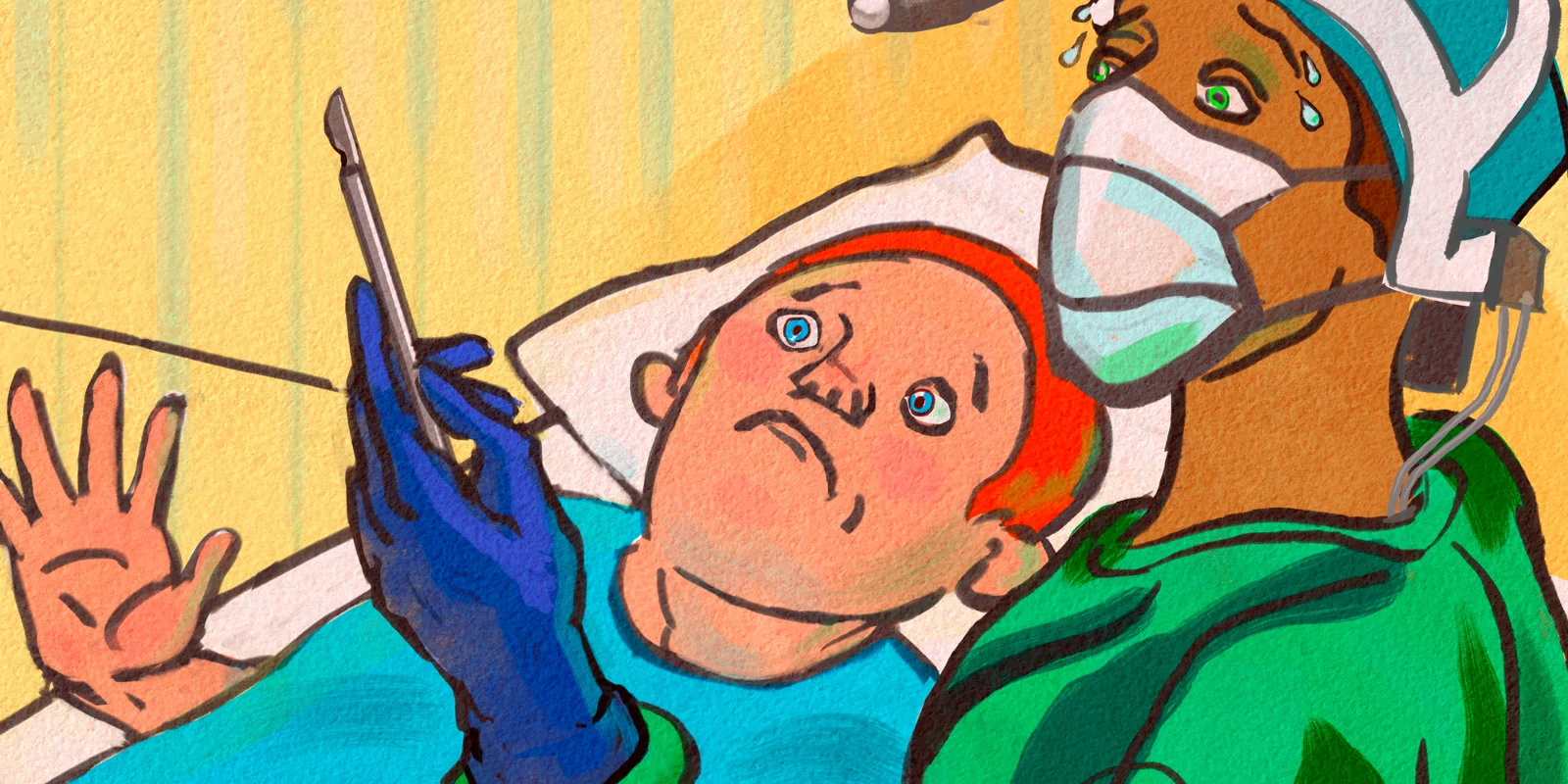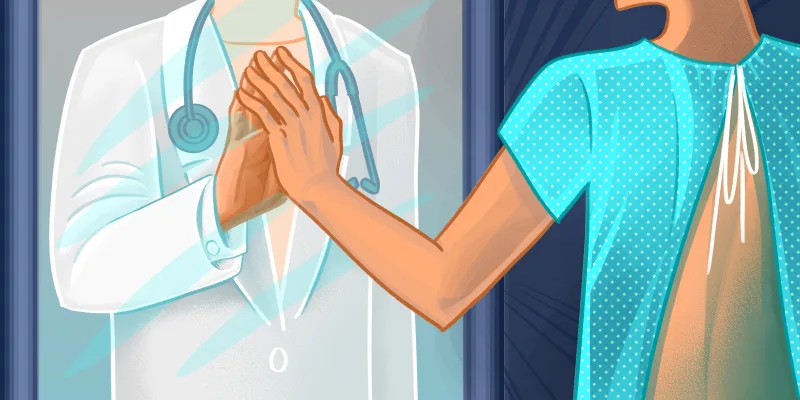
By the time you begin taking consults as a young surgical resident, you have already been in the operating room a time or two. Maybe opened a few cases, dabbled in dissection, and closed the skin with an unbridled eagerness that only medical students possess. The point is, you think you’re cool. You don’t get to this point without having seen your fair share of gory cases, traumas, and hemorrhages.
So you receive a consult to the emergency department, and it’s a well-defined maxillary abscess visualized on CT imaging that will need to be drained. The remainder of the team is in the OR, the clinic, or anywhere but here. You’ve seen facial abscess drainages before, on the floor and in the ED. You’ve even participated a few times while the patient has been under general anesthesia in the OR, but nothing has prepared you for this.
The patient is friendly and relatively upbeat, all things considered. A fifty-something year old man sits before you on the bed and waits patiently while you assemble all of your tools, including but not limited to: lidocaine with epi, syringes, 18g and 27g needles, a 15 blade, and curved Kellys. You inject the local anesthesia into the gingivobuccal sulcus, and then you wait. He cringes while you’re injecting the lidocaine, which makes you cringe, too. You find that you have some level of decency or civility that makes it viscerally difficult to perform painful procedures on awake patients.
Now comes the main event. You grab the scalpel and aim your headlight intraorally onto the mucosa where you’ll make the first cut. The patient, clearly nervous now, awaits your next move. You make a small incision. It’s not deep enough — hardly causes any bleeding at all, let alone opens a sufficient space for blunt dissection to proceed. Every fiber of your being is telling you not to continue torturing this patient anymore. You do not have the heart to cause him pain and discomfort by your own hand.
You wonder, do you have the heart of a surgeon at all? You signed up for a job to alleviate pain and illness in the operating room; your patient comfortably asleep, your meticulous work completely unhindered by considerations of patient comfort. It is a completely different beast in the emergency department setting, with the fully awake patient. What has this guy ever done to you? Based on the principle, “do unto others what you would have done unto you,” you think that you should put your tools down and walk away right now.
It is a difficult thing. Not uncommonly, young surgeons will make the mistake of not cutting deep enough, or not applying enough pressure. Because this patient can feel your dissection and manipulation, you hope that your reticence can be forgiven.
But the show must go on. You do want to help the patient, and his abscess needs to be drained. The pocket is nearly at the level of the zygomatic process — this will require considerable dissection to reach. So you enlarge the incision, inject a bit more lidocaine, and then attempt dissection into the incision with curved kellys. The patient flinches and jumps backwards with pain. You flinch, and fight the urge to jump backwards in alarm. You plod forward. In the end, a few cc of pus drain but you are not convinced that you’ve opened up everything. Your chief texts you to say that you can pack the wound open and she’ll re-evaluate later that afternoon on rounds. The patient will be admitted to the hospital anyway, based on his comorbidities and the need to treat his infection with IV antibiotics.
You pack the wound and warn your chief that you’re “not sure” you’ve gotten into the whole abscess. You thank the patient for tolerating the procedure so well. When you return to see him with the chief a few hours later, and she sees the work that you’ve done, with about 1cm of iodoform gently propping open the world’s smallest incision and dissection- she laughs out loud. Not in a mean-spirited way, and you can see the humor in all of this too. Well, rather, you figure you’ll see the humor in it someday. You remind her that she was warned that this was your first solo incision and drainage. With the swiftness and elegance of a chief resident, she grabs a curved Kelly and stabs directly into the incision while holding the back of the patient’s head for countersupport. 20cc of pus immediately spills out and the patient sighs with relief. You are shocked by the amount of force that was necessary to reach and open the abscess, but you do learn.
Frances Mei Hardin is an otolaryngology resident.







